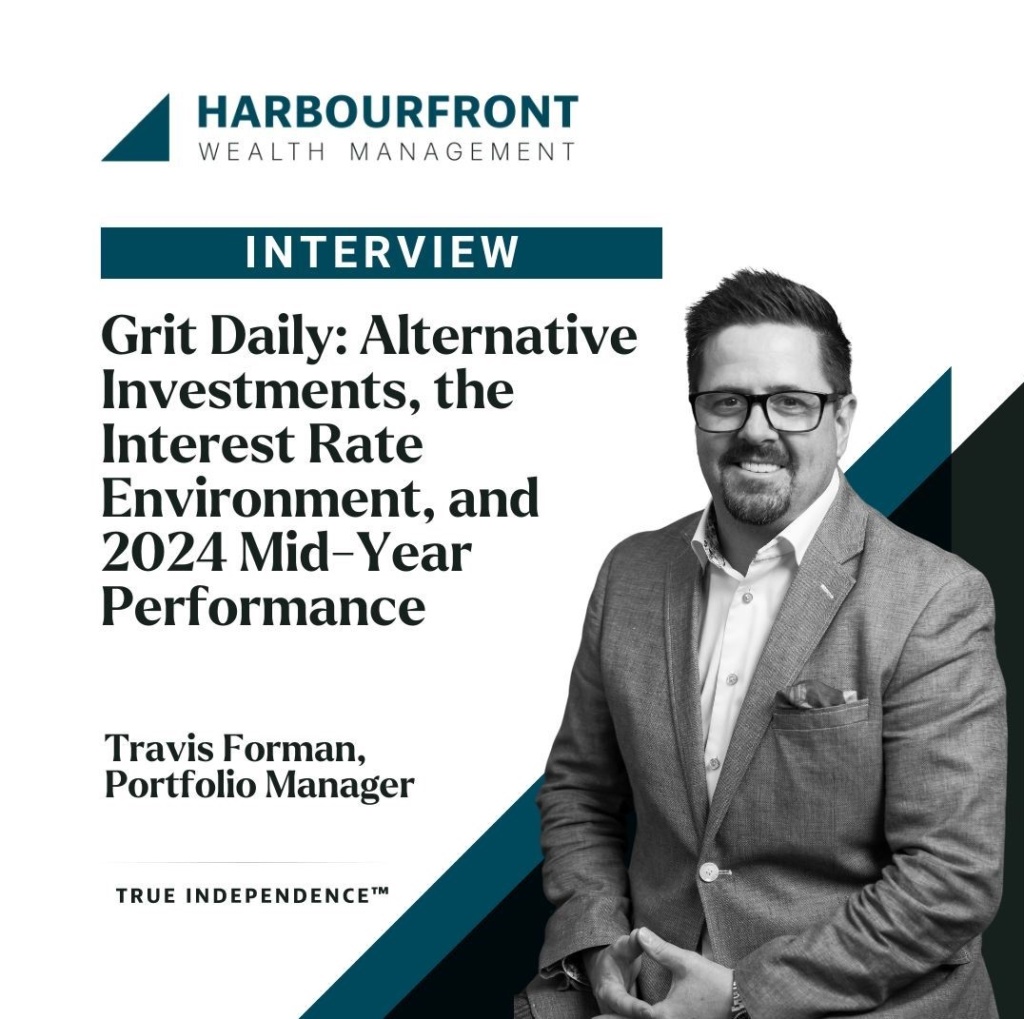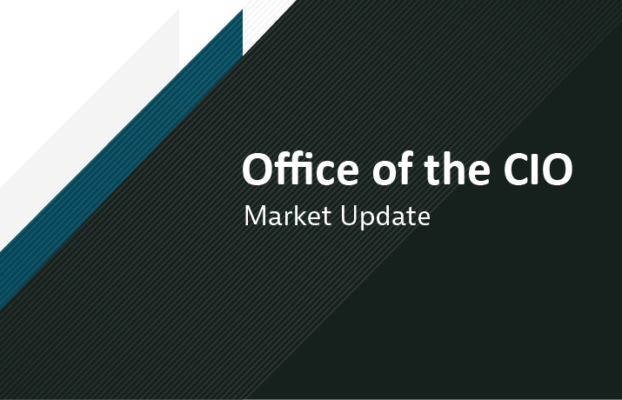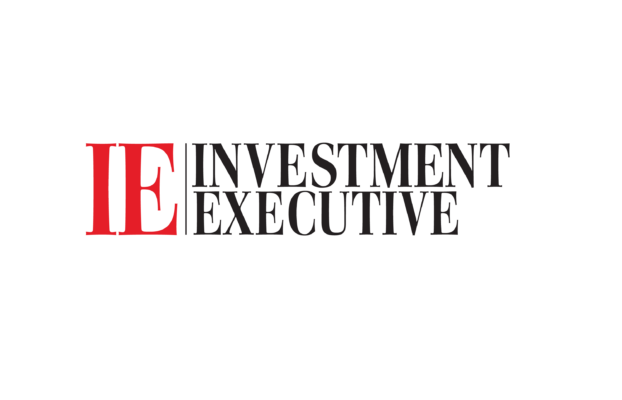Alternative investments in the current market environment
Travis Forman, Portfolio Manager at Strategic Private Wealth Counsel – Harbourfront Wealth Management, is sharing mid-year insights with input on the alternative investment sector and the interest rate environment in a new interview with Jordan French from Grit Daily.

Alternatives have been around for some time. What’s different today?
Forman shares how alternatives are a way to move beyond the traditional 60/40 portfolio. Canadians are seeing a proliferation of new alternative products available on the self, giving more access to participate in an asset class which can help add diversification to the traditional stocks and bond portfolio.
“Although public markets continue to gain ground in the first half of 2024, this has not stopped people from allocating to private investments,” says Forman. “In fact, with the recent successes in public investments, it’s likely a perfect time to trim some public market risk and build up one’s private allocation if one hasn’t done so already.”
81% of advisors say their clients have been investing in a wider range of asset classes over the past year, according to a recent Ortec Finance survey of wealth managers and financial advisors from five European countries and Canada. This is part of an ongoing industry-wide conversation. For example, The Globe and Mail recently interviewed Neil Greenbaum, executive vice-president of sales and partnerships, North America, for Ortec Finance. He discussed how advisors are turning to alternative investments to counter home-country bias.
As a Top 10 Economy, Canada has exhibited a lack of concerted effort to generate awareness around the private investments category, which accounts for a market capitalization double in size compared to the public market in various countries.
“It’s no longer a secret that adding private or alternative investments can reduce a portfolio’s public market correlation and risk, ultimately increasing its probability of long-term success,” says Forman. “The data is in, and investors with a healthy allocation to private investments such as credit, real estate, and equity fared far better than those with 100% public investments.”
Performance cannot be based on short-term metrics alone
Over the past 20 years leading up to 2022, private markets outperformed publicly traded equities, offering better returns and more diversification opportunities. Private equity delivered an average annual return of 14.75% over 20 years, compared to 9.25% for the S&P 500—a significant difference, noticeable in any portfolio.
What about the current interest rate environment in the US and Canada?
Countries around the world today are facing hiking interest rates not seen to this degree since the 1980s. In the US, the Federal Reserve decided to hold interest rates after its meetings in early June, with US Federal Reserve getting ‘closer’ to cutting interest rates, top officials say, given inflation’s improved trajectory and a labour market in better balance, according to reports from Reuters. To combat inflation, the rate was raised 11 times between March 2022 and July 2023.
On June 5, the Bank of Canada announced a 25-basis point reduction in its overnight lending rate, lowering the benchmark rate to 4.75%. This marked the first cut of the current cycle, initiated after the Covid-19 pandemic.
Interest rate movement affects Canadians because the Canadian economy is underpinned by real estate, and the climbing interest rates the country’s been experiencing have made it particularly difficult to buy property. The next scheduled date for the Bank of Canada announcing the overnight rate target is July 24, 2024, the same time it’s expected to publish its next full outlook for the economy and inflation, including risks to the projection.
Read the full interview with Travis Forman for how investors can prepare for the rest of the year: https://gritdaily.com/alternative-investments-interest-rate-environment/.
If you’d like to discuss your portfolio, connect directly with an advisor.
Disclaimer
I, Travis Forman, have prepared this commentary to give you my thoughts on various investment alternatives and considerations which may be relevant to your portfolio. This commentary reflects my opinions alone and may not reflect the views of Harbourfront Wealth Management Inc. In expressing these opinions, I bring my best judgment and professional experience from the perspective of someone who surveys a broad range of investments. Therefore, this should be viewed as a reflection of my informed opinions rather than analyses produced by Harbourfront Wealth Management Inc.



Market and Economic Insights – Q1 2025
10 April 2025